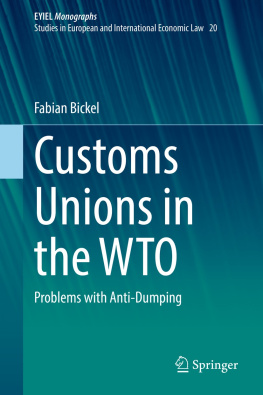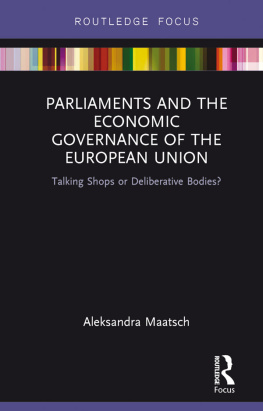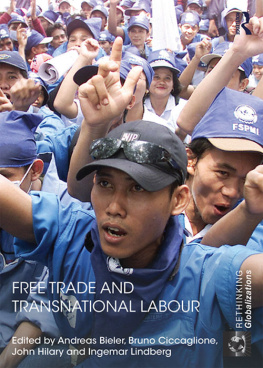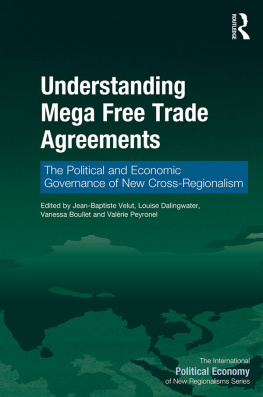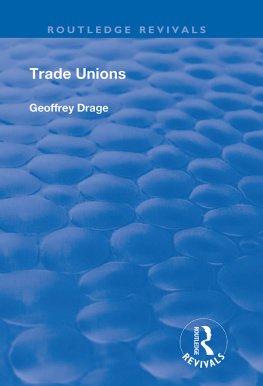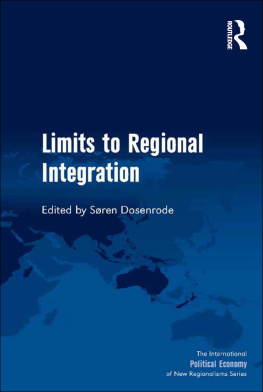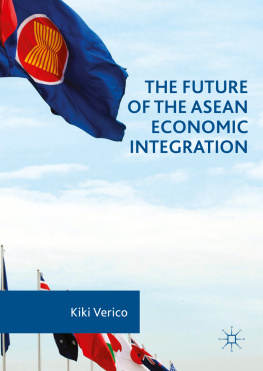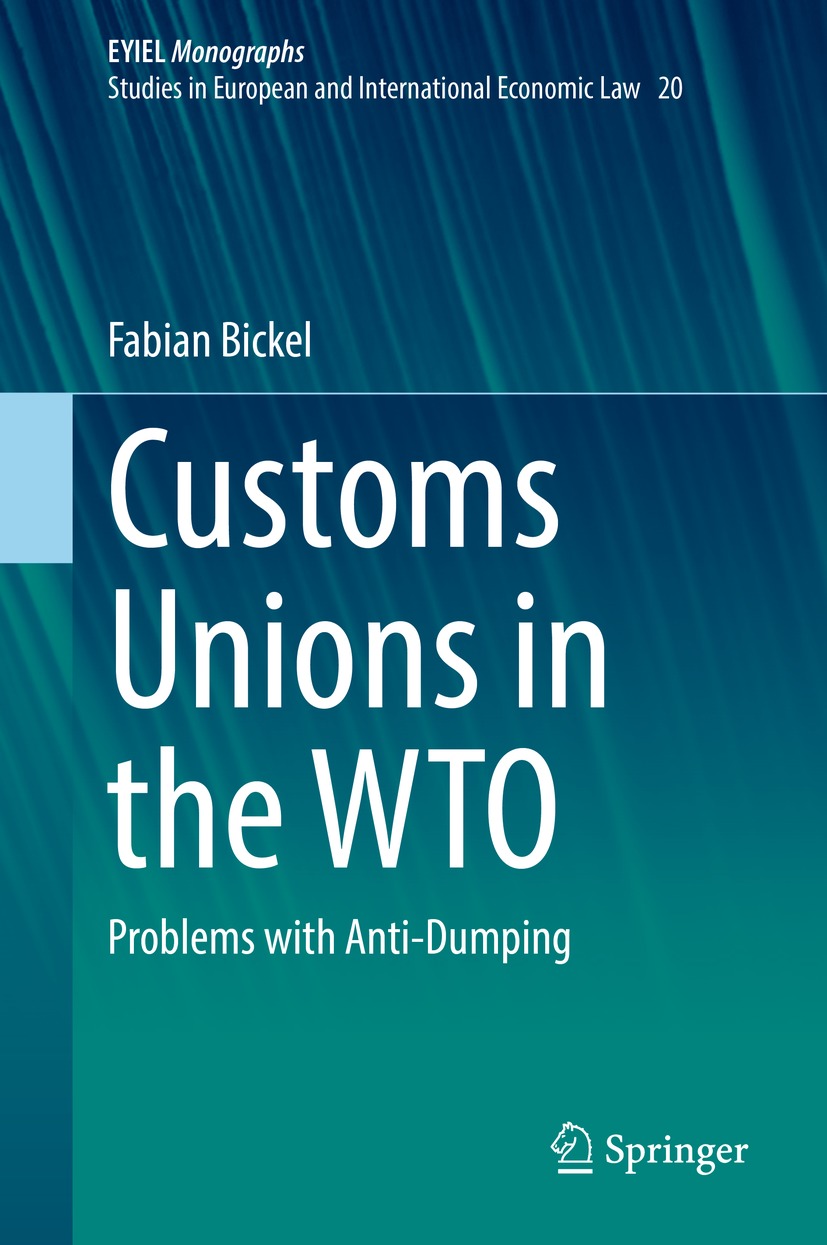Volume 20
European Yearbook of International Economic Law EYIEL Monographs - Studies in European and International Economic Law
Series Editors
Marc Bungenberg
Saarbrcken, Germany
Christoph Herrmann
Passau, Germany
Markus Krajewski
Erlangen, Germany
Jrg Philipp Terhechte
Lneburg, Germany
Andreas R. Ziegler
Lausanne, Switzerland
EYIEL Monographs is a subseries of the European Yearbook of International Economic Law (EYIEL). It contains scholarly works in the fields of European and international economic law, in particular WTO law, international investment law, international monetary law, law of regional economic integration, external trade law of the EU and EU internal market law. The series does not include edited volumes. EYIEL Monographs are peer-reviewed by the series editors and external reviewers.
More information about this subseries at http://www.springer.com/series/15744
Fabian Bickel
Customs Unions in the WTO
Problems with Anti-Dumping
1st ed. 2021

Logo of the publisher
Fabian Bickel
Berlin, Germany
ISSN 2364-8392 e-ISSN 2364-8406
European Yearbook of International Economic Law
ISSN 2524-6658 e-ISSN 2524-6666
EYIEL Monographs - Studies in European and International Economic Law
ISBN 978-3-030-86311-1 e-ISBN 978-3-030-86312-8
https://doi.org/10.1007/978-3-030-86312-8
The Editor(s) (if applicable) and The Author(s), under exclusive license to Springer Nature Switzerland AG 2021
This work is subject to copyright. All rights are solely and exclusively licensed by the Publisher, whether the whole or part of the material is concerned, specifically the rights of translation, reprinting, reuse of illustrations, recitation, broadcasting, reproduction on microfilms or in any other physical way, and transmission or information storage and retrieval, electronic adaptation, computer software, or by similar or dissimilar methodology now known or hereafter developed.
The use of general descriptive names, registered names, trademarks, service marks, etc. in this publication does not imply, even in the absence of a specific statement, that such names are exempt from the relevant protective laws and regulations and therefore free for general use.
The publisher, the authors and the editors are safe to assume that the advice and information in this book are believed to be true and accurate at the date of publication. Neither the publisher nor the authors or the editors give a warranty, expressed or implied, with respect to the material contained herein or for any errors or omissions that may have been made. The publisher remains neutral with regard to jurisdictional claims in published maps and institutional affiliations.
This Springer imprint is published by the registered company Springer Nature Switzerland AG
The registered company address is: Gewerbestrasse 11, 6330 Cham, Switzerland
Meinen Eltern
Acknowledgements
In the journey leading to this monograph, I was fortunate to have enjoyed the company of my wonderful friends and colleagues. First and foremost, I am thankful for the support of Prof. Christoph Herrmann. He was always there in times of need and encouraged and challenged my ideas. I am thankful to Prof. Pauwelyn for his valuable and extremely detailed comments on earlier drafts of this book.
I am grateful to Dr. Karl Brauner and Dr. Christian Melischek without whom my research stay at the WTO would not have been possible and for being great hosts. I thank Dr. Gustav Brink, Maxim Shmelev, Sahar Hosni, Darlan Mart, Alexis Massot, Jean-Daniel Rey, Nathalie Diaz, Carina van Vuuren, and Graham Cook for their valuable comments and helpful discussions. I also thank Dr. Katharina Steinbrck for her valuable input on an earlier draft of this book and her enduring support.
This monograph is a revised version of my doctoral thesis which was written at the Universitt Passau. The thesis was supervised by Prof. Christoph Herrmann, who also acted as the first examiner. Prof. Joost Pauwelyn acted as the second examiner and Prof. Hans-Georg Dederer chaired the defence, which took place in June 2021.
This thesis would not have been possible without the unconditional support and help of my loved ones and especially not without my parents and Sarah Tillmann.
Abbreviations
AB
Appellate Body
ADM
Anti-Dumping Measure
Brexit
UK Withdrawal from the EU in 2020
CACM
Central American Common Market
CAN
Andean Community
CARICOM
Caribbean Community and Common Market
CCT
Common Customs Tariff
CEMAC
Economic and Monetary Community of Central Africa
COMESA
Common Market for Eastern and Southern Africa
CTD
Committee on Trade and Development
CU
Customs Union
DIMD
EAEU Department for Internal Market Defence
DIT
UK Department for International Trade
DSB
Dispute Settlement Body
EAC
East African Community
EAEU
Eurasian Economic Union
ECOWAS
Economic Community of West African States
EEA
European Economic Area
EEC
Eurasian Economic Commission
EU
European Union
FSVPS
Russian Federal Service for Veterinary and Phytosanitary Supervision
GCC
Gulf Cooperation Council
GSP
General System of Preferences
IO
International Organization
LDC
Least Developed Country
MERCOSUR
Southern Common Market
MFN
Most-Favoured Nation
MS
Member States
NAFTA
North American Free Trade Agreement
NME
Non-Market Economies
ORC
Other Regulations of Commerce
ORRC
Other Restrictive Regulations of Commerce
PRS
Price Range System
SACU
South African Customs Union
TRA
UK Trade Remedy Authority
UN
United Nations
USMCA
United States Mexico Canada Agreement
WAEMU
West African Economic and Monetary Union
WTO
World Trade Organization
Contents
List of Figures
List of Tables
The Author(s), under exclusive license to Springer Nature Switzerland AG 2021
F. Bickel Customs Unions in the WTO EYIEL Monographs - Studies in European and International Economic Law https://doi.org/10.1007/978-3-030-86312-8_1
1. Introduction
Events until 5 July 2021 were considered.
Even though the World Trade Organization (WTO)
Therefore unsurprisingly, ongoing regional or bilateral economic integration has probably been the most significant trend for international trade in goods since the creation of the WTO. Whereas in 1995, when the WTO was founded, 47 Free Trade Agreements (FTAs) and customs unions (together: RTAs) were in force, this has increased more than six-fold to 303 in 2020.all topics that are not or only scarcely regulated multilaterally.
This trend towards more and deeper regionalism is also reflected in a proliferation of customs unions. Whereas in 1995 only eight customs unions existed, by 2020 the number has doubled to 16. Among those, more are deeply integrated with four customs unions now reporting their anti-dumping measures jointly instead of just onethe ECin 1995.
Some attribute this trend to the fact that multilateralism has been in decline ever since the failed WTO negotiations at the 1999 Seattle Ministerial Conference

